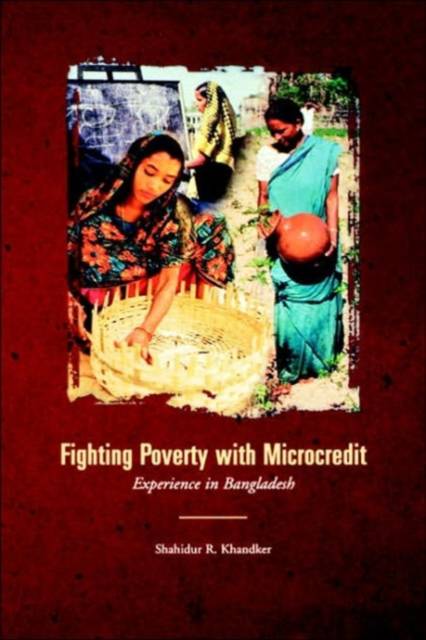
Door een staking bij bpost kan je online bestelling op dit moment iets langer onderweg zijn dan voorzien. Dringend iets nodig? Onze winkels ontvangen jou met open armen!
- Afhalen na 1 uur in een winkel met voorraad
- Gratis thuislevering in België vanaf € 30
- Ruim aanbod met 7 miljoen producten
Door een staking bij bpost kan je online bestelling op dit moment iets langer onderweg zijn dan voorzien. Dringend iets nodig? Onze winkels ontvangen jou met open armen!
- Afhalen na 1 uur in een winkel met voorraad
- Gratis thuislevering in België vanaf € 30
- Ruim aanbod met 7 miljoen producten
Zoeken
Omschrijving
With increasing assistance from the World Bank and other donors, microfinance is emerging as an instrument for reducing poverty and improving the poor's access to financial services in low-income countries. Providing the poor with access to financial services is one of many ways to help increase their incomes and productivity. In many countries, however, traditional financial institutions have failed to provide this service. Microcredit and cooperative programs fill this gap. They provide credit through social mechanisms such as group-based lending to reach the poor and other clients, including women, who lack access to formal financial institutions. Their purpose is to help the poor become self-employed and thus escape poverty. This book examines the experiences of the Grameen Bank, the Bangladesh Rural Advancement Committee, and the Bangladesh Rural Development Board's Rural Development Project-12 in order to quantify the potential and limitations of microcredit programs as an instrument for reducing poverty and delivering financial services to the poor. A copublication of the World Bank and Oxford University Press.
Specificaties
Betrokkenen
- Auteur(s):
- Uitgeverij:
Inhoud
- Aantal bladzijden:
- 240
- Taal:
- Engels
- Reeks:
Eigenschappen
- Productcode (EAN):
- 9780195211214
- Verschijningsdatum:
- 1/11/1998
- Uitvoering:
- Hardcover
- Formaat:
- Genaaid
- Afmetingen:
- 152 mm x 229 mm
- Gewicht:
- 526 g

Alleen bij Standaard Boekhandel
+ 139 punten op je klantenkaart van Standaard Boekhandel
Beoordelingen
We publiceren alleen reviews die voldoen aan de voorwaarden voor reviews. Bekijk onze voorwaarden voor reviews.











